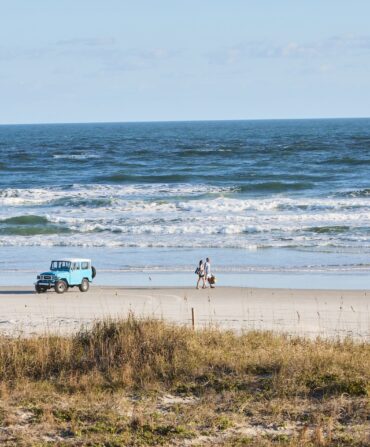Travel
The Dew Drop Inn, a Storied New Orleans Chitlin’ Circuit Landmark, Reopens
At long last, visitors can once again catch a show and stay in the renovated boutique hotel at the historic Central City spot
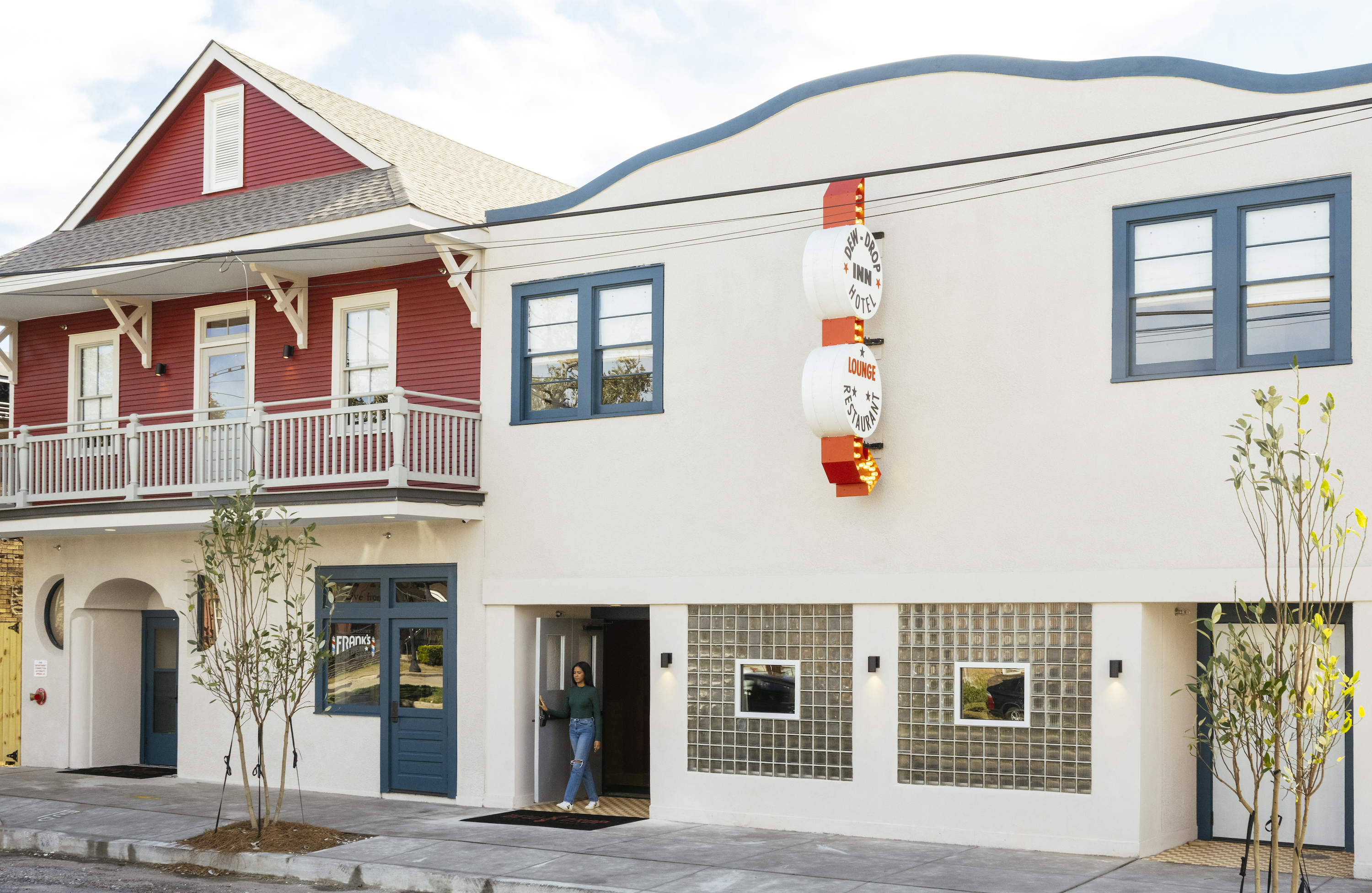
Photo: RUSH JAGOE
Outside of the Dew Drop Inn.
To music fans, New Orleans is known as much for its jazz heritage as for the ornate wrought-iron balconies overhanging the streets of the French Quarter. Much of that musical history has become just a memory, with development pushing out storied venues. For decades, the Dew Drop Inn on Lasalle Street, a major stop on the chitlin’ circuit, the Jim Crow–era network of clubs where Black musicians performed, was likely next to disappear.
“There were places in the building where I could just see daylight,” says the property’s new owner, Curtis Doucette Jr. “We were maybe one storm away, one incident away, from the Dew Drop Inn not being able to be restored.”
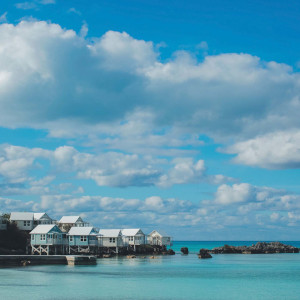
Doucette purchased the inn and has spent the last two years restoring it to its early-fifties glory alongside a team of architects and artisans who created a period-accurate experience. Now, the pair of buildings that original owner Frank Painia combined into the Dew Drop Inn houses a 410-person-capacity music club, a seventeen-room boutique hotel (now taking bookings), a restaurant, and two bars—all slated to be fully open in March.
When it first opened in 1939, the Dew Drop Inn hosted local talent like Allen Toussaint and Irma Thomas alongside such touring artists as Aretha Franklin, Marvin Gaye, and Ray Charles. Little Richard, who also frequented the club, finished “Tutti Frutti”—recognized as one of the first rock ‘n’ roll songs—here on break from a nearby recording session.
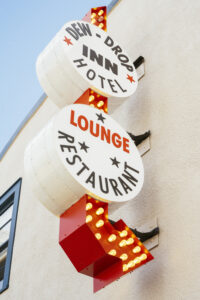
Photo: RUSH JAGOE
A detail of the retro sign.
While the Dew Drop Inn is known mostly for its deserved place in music history, Painia, a barber by trade, also kept a barbershop, operated a restaurant, and rented hotel rooms here, earning it a spot in the Negro Motorist Green Book, an annual publication that advised Black travelers on safe places to stop. At a time when even stars like B. B. King had to travel with mess kits on the bus for occasions when no one would serve his band a meal, places like the Dew Drop Inn were outposts of decency and respect.
“It was a hotel where the musicians who were traveling could have a place to stay and all these things in one place,” Doucette says. “If you needed a haircut, you could get it there. If you needed a plate of beans and rice, we had the best in town. If you needed a drink, we had that. If you needed to hear some music, we had that. We had everything all under one roof.”
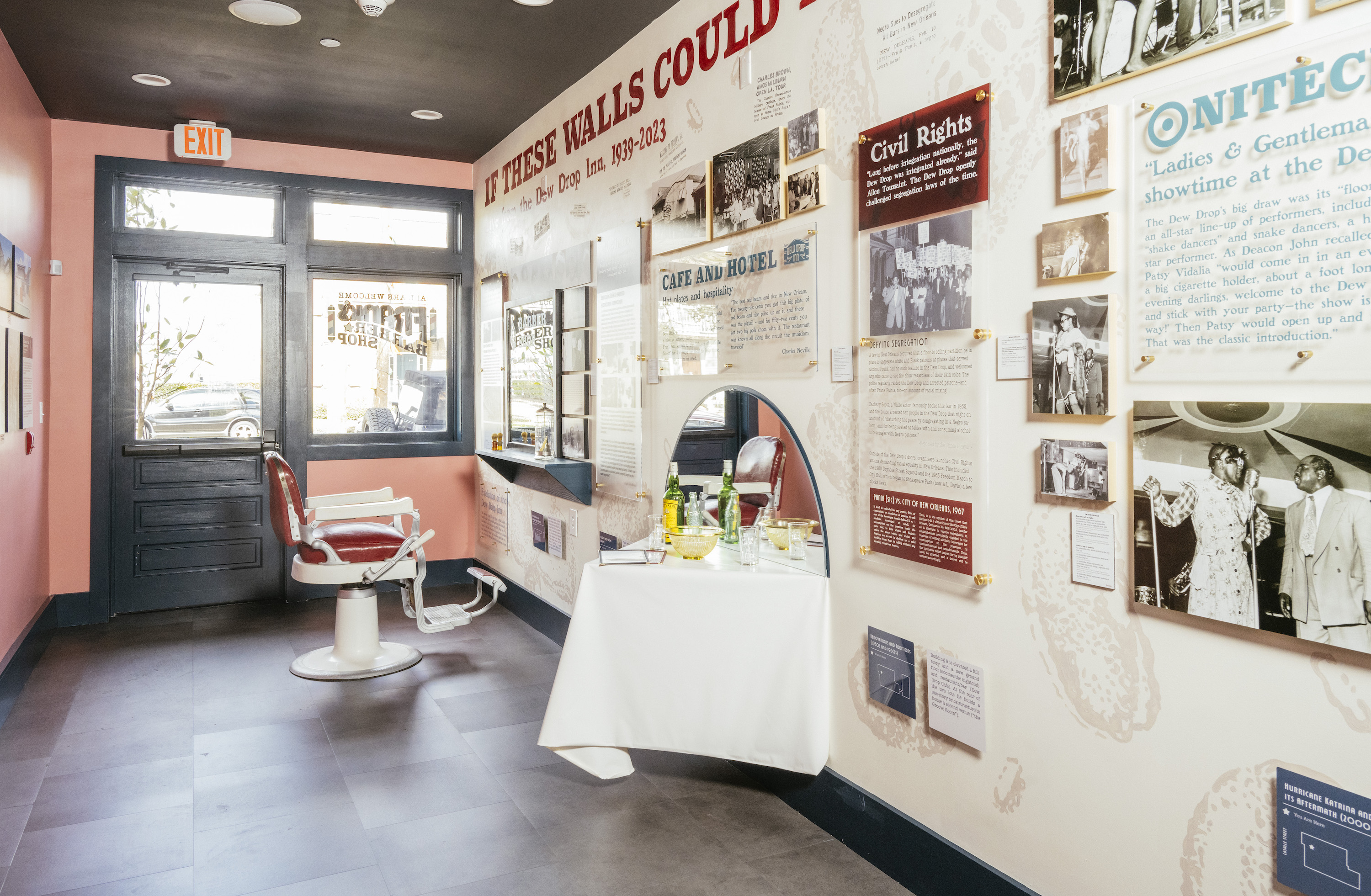
Photo: RUSH JAGOE
The Dew Drop Inn highlights the property's rich history as a hotel, lounge, club, restaurant, and barbershop.
The club started to fade in popularity in the 1960s and fell into disrepair over the following decades. Then, in 2005, Hurricane Katrina flooded the space. Doucette secured funding to purchase the deteriorated building in 2021 and began the long process of restoration.

Photo: RUSH JAGOE
A lounge inside the inn.
While most of the original space and corridors are intact and reset to the time period, Doucette chose to honor a single musician or other important figure in each of the seventeen hotel rooms, creating “informal museums,” he says. Little Richard gets a room, as does local civil rights activist A.P. Tureaud, who sued the city on Painia’s behalf in a desegregation case, and Dutch Morial, who became the city’s first Black mayor in 1978.

Photo: Rush Jagoe
The Groove Suite Room; the Roosevelt Room.
Doucette hopes reopening the Dew Drop Inn will help reverse the trend of vanishing musical history while there’s still time to save other notable places—like the shotgun house four blocks away where jazz pioneer Buddy Bolden lived, and the Eagle Saloon jazz club downtown, a modest brick structure standing among modern skyscrapers.
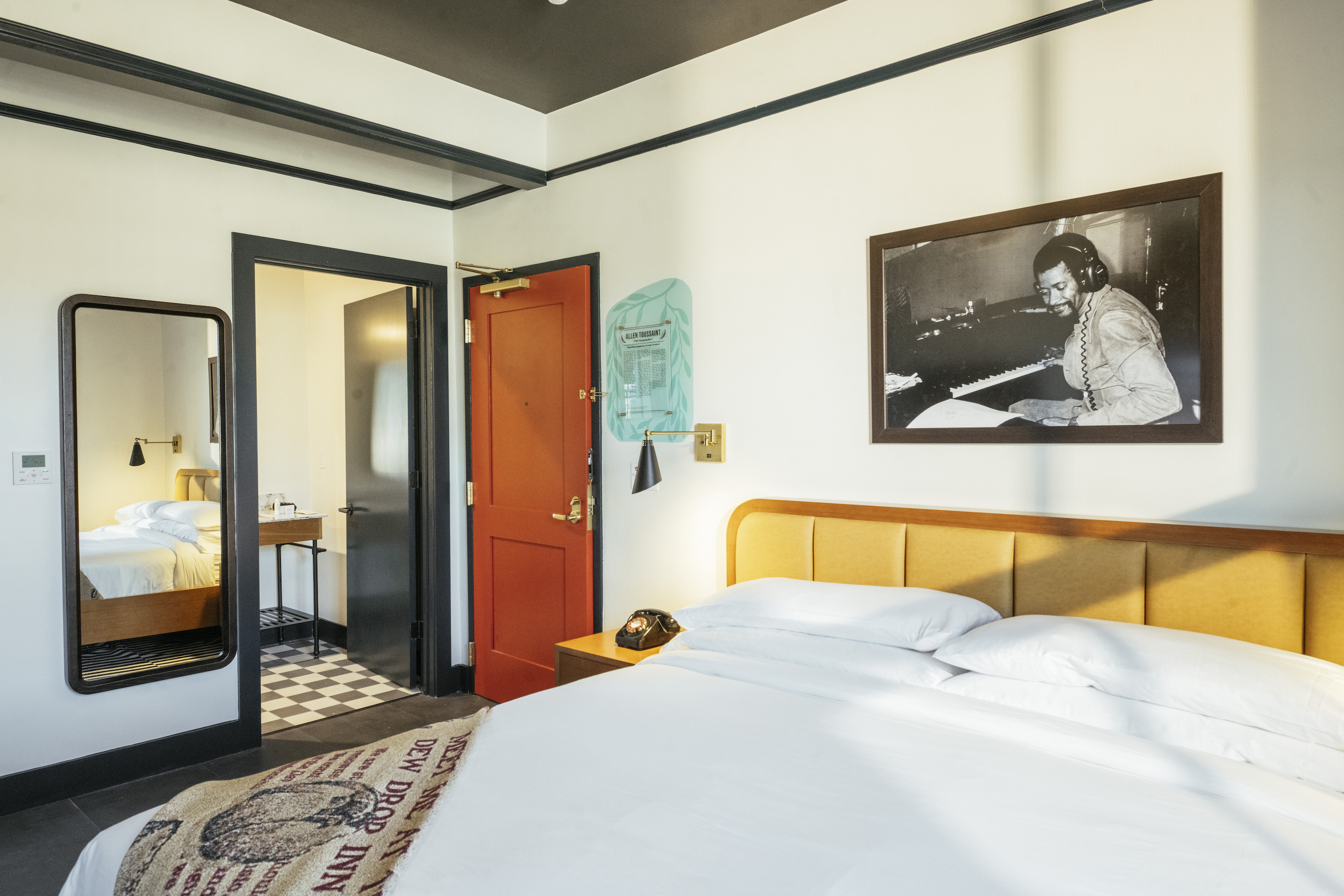
Photo: Rush Jagoe
The Allen Toussaint Room.
“We think about what the Dew Drop Inn would be if it never ceased to exist,” he says. “What would it be spiritually? We believe it’s a place of discovery. We want to carry on that history and legacy, and maybe we’ll find the next Ray Charles, Little Richard, Marvin Gaye, or Etta James at the Dew Drop Inn.”


